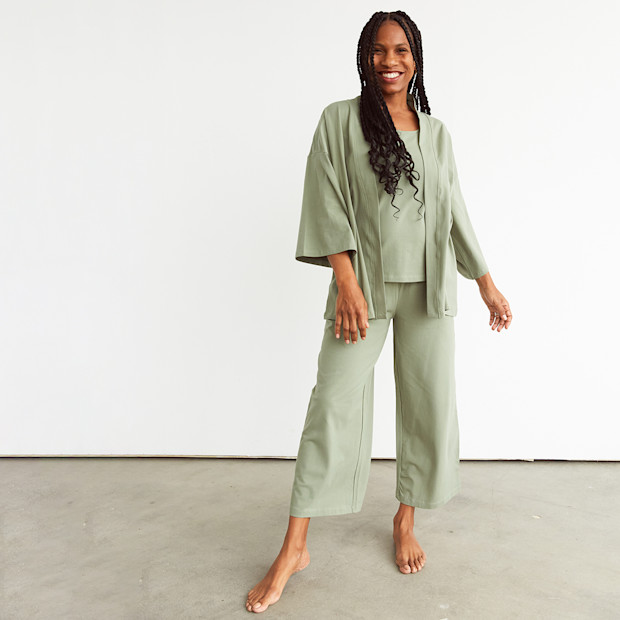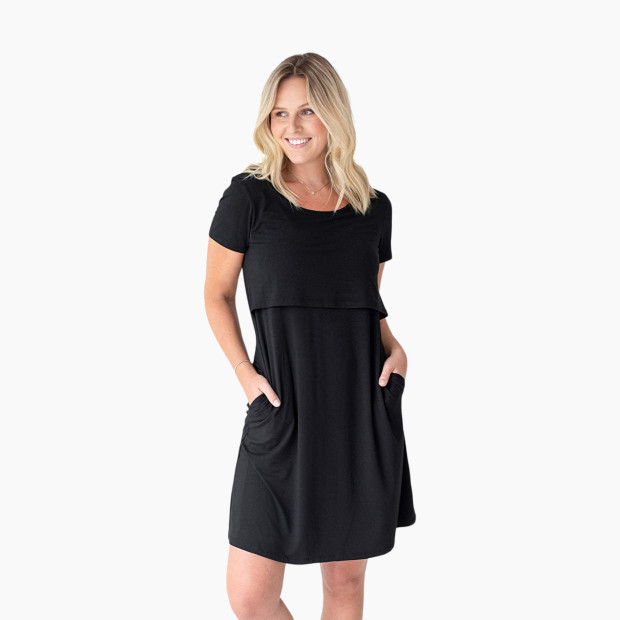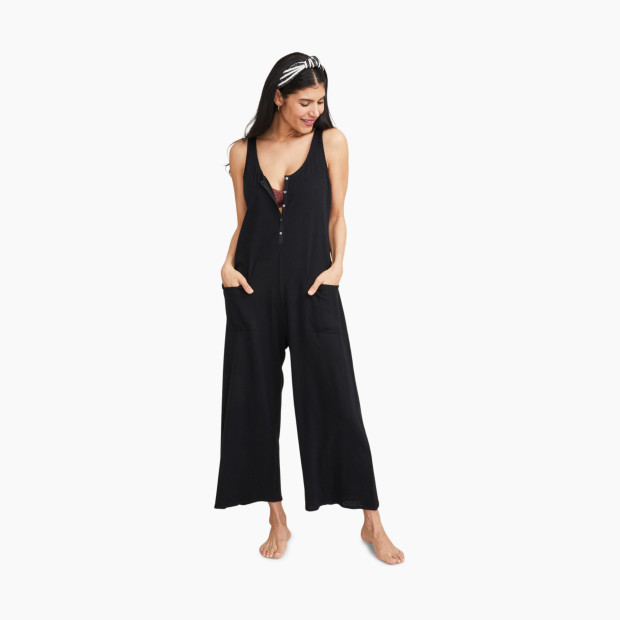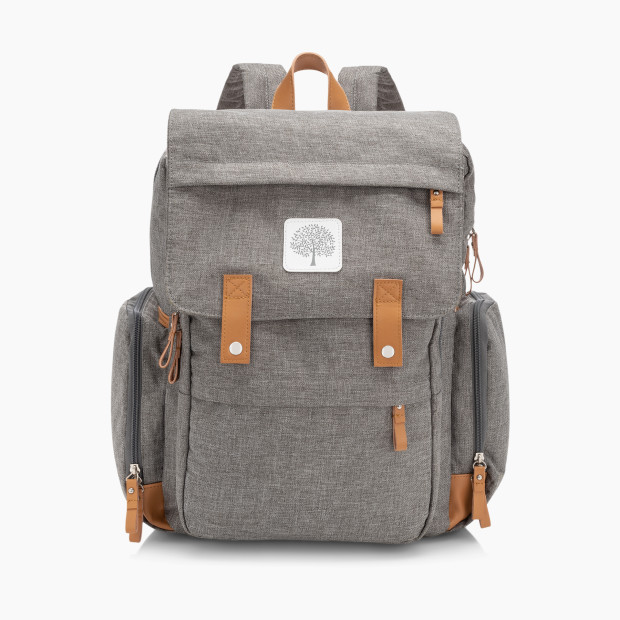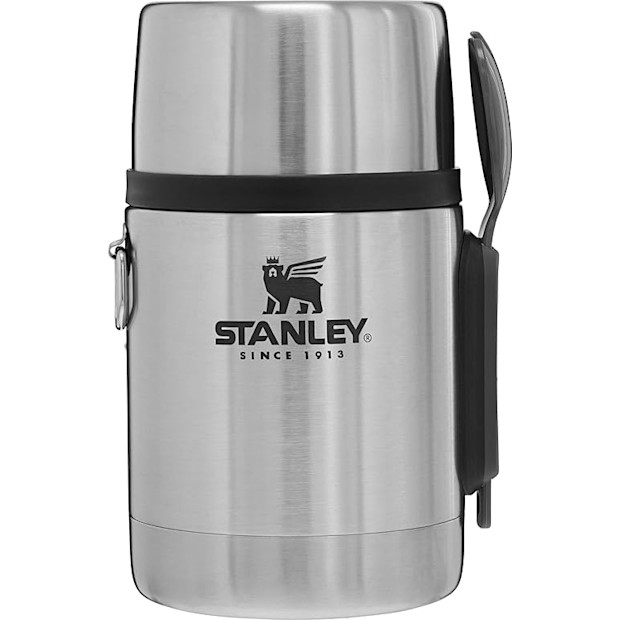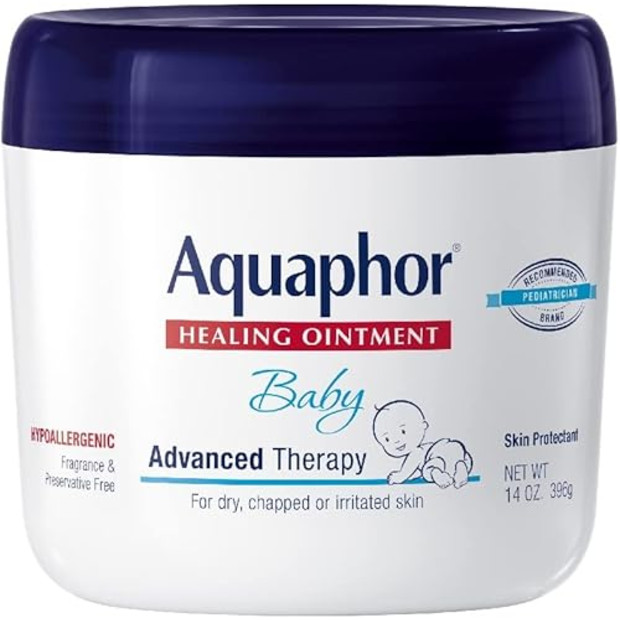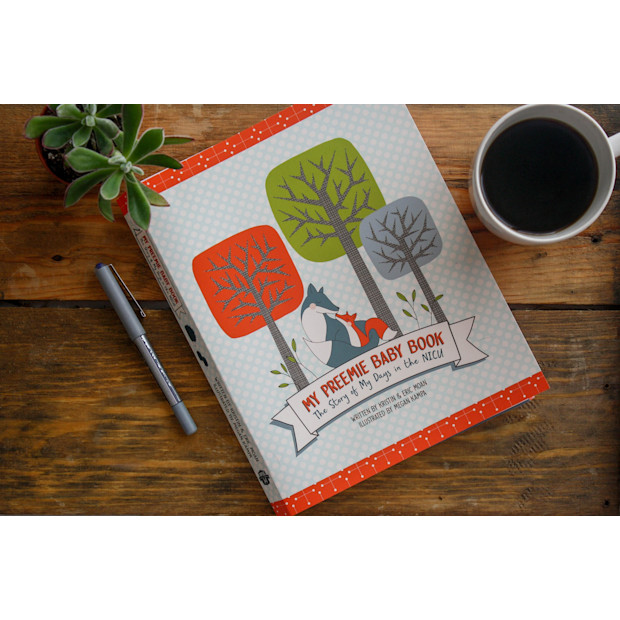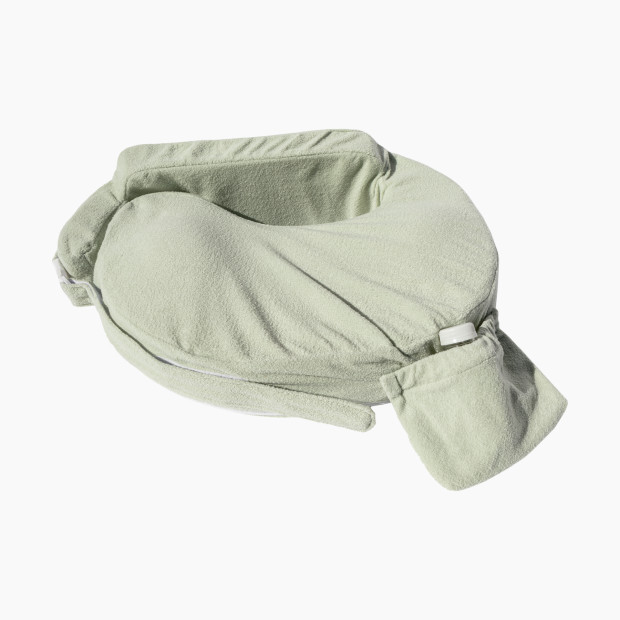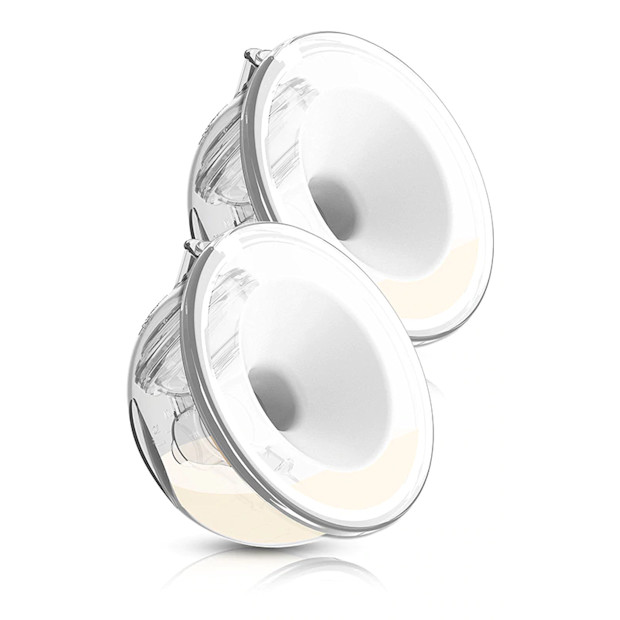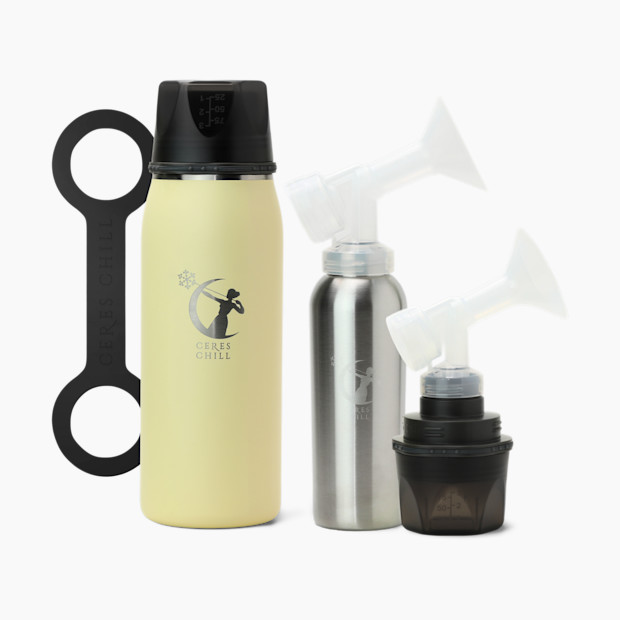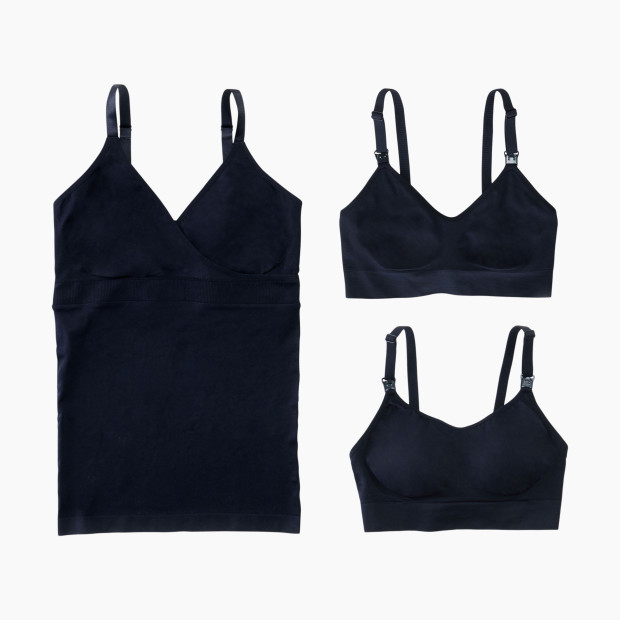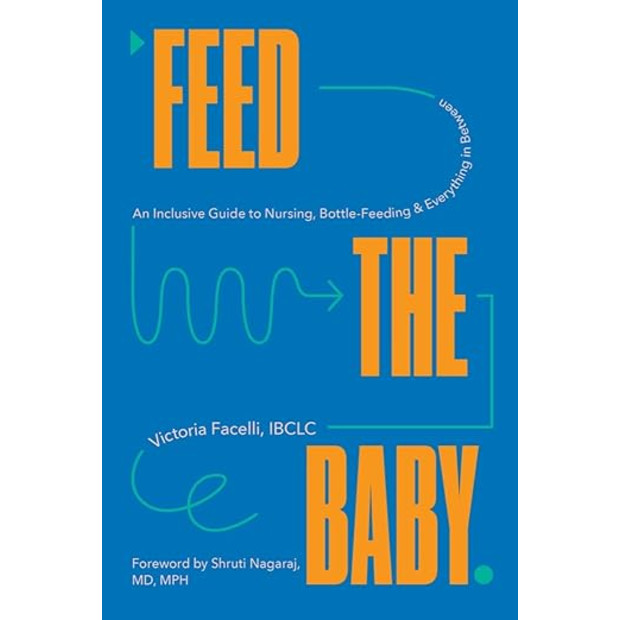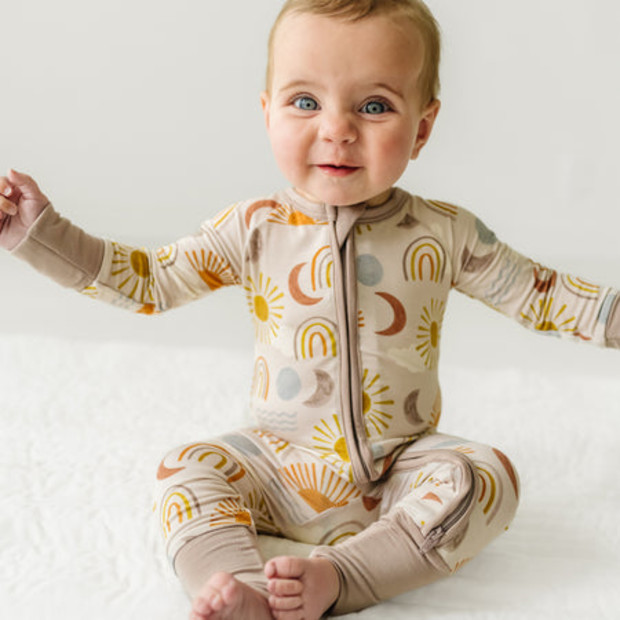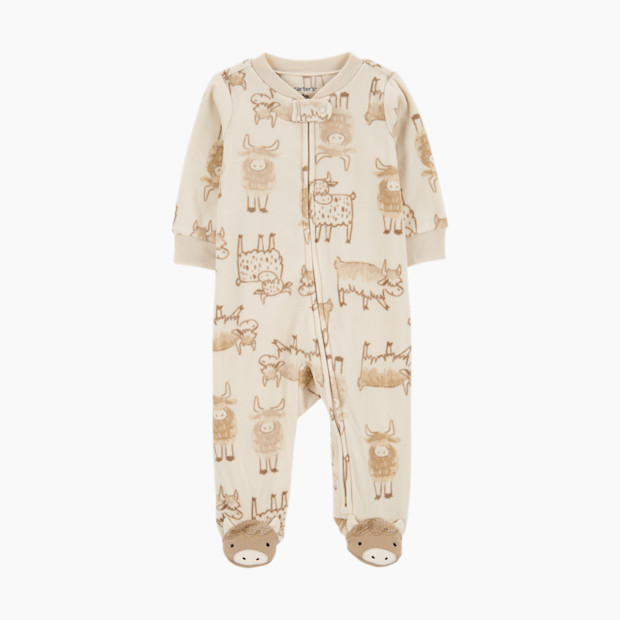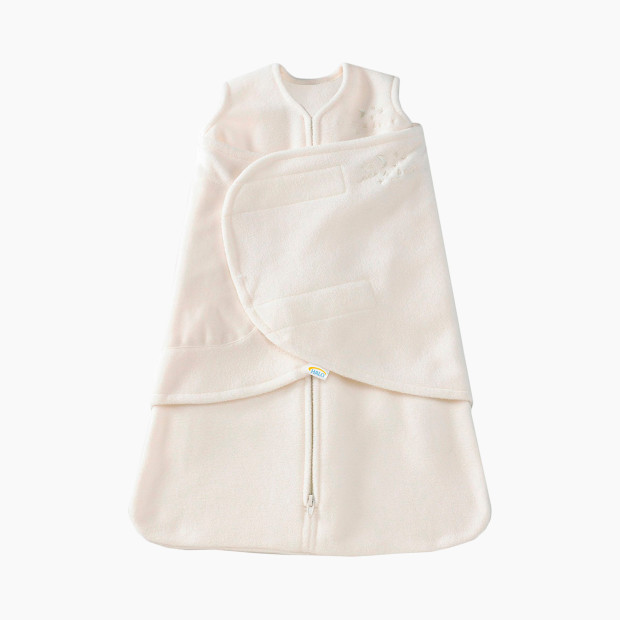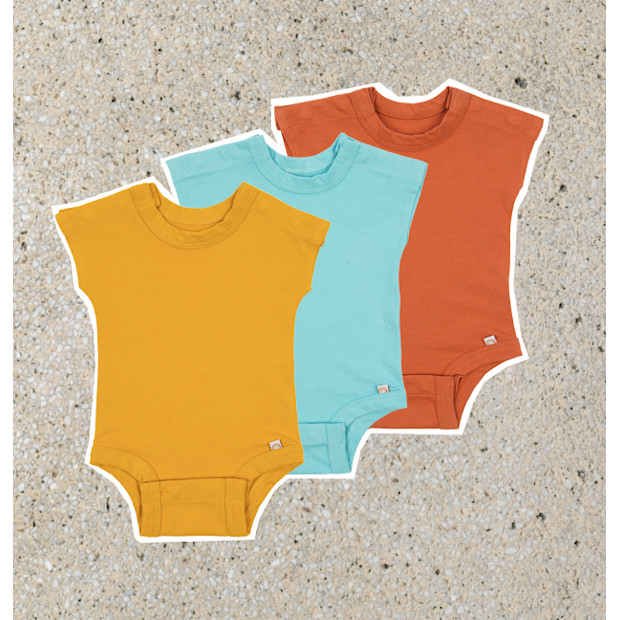
NICU Parents Say These 27 Products Made Their Journey Easier
NICU babies, especially preemies, need special care both in the hospital and at home—and that means special gear.

In This Article
No one begins their NICU journey fully prepared—even if you’ve been preparing for your baby’s arrival since the moment you took that first pregnancy test, and even if, like me, you already had your nursery set up in your second trimester. It can be tough to anticipate everything that your baby (and you) might need during and after being in the NICU.
I gave birth to my youngest at 26 weeks; she weighed just over a pound and a half and spent 109 days in the NICU. I’m also a certified pediatric sleep consultant and a bonafide baby gear nerd, so during the early days of our NICU stay—when my daughter was too fragile to be held for very long—I spent my time sitting next to her isolette, scouring the internet for survival strategies, picking the brains of her wonderful NICU nurses and speaking with other NICU parents and baby experts. And it was out of all of that that this guide was born.
Having a NICU baby brings its own unique set of needs to your parenting journey: traveling back and forth from the hospital daily, pumping around the clock and helping your baby transition home, to name a few. And with that comes a unique set of baby products. You and baby may be taking things day by day, but even just a few conveniences (and strategic pieces of baby gear) can go a long way in helping you through this journey.
Combining my first-hand experience with recommendations from other NICU parents and NICU nurses, these products can support both you and baby through your time in the NICU and beyond—including products for parents to use in the NICU, help with NICU feeding, and to keep baby comfortable in the NICU and smooth the transition when baby comes home.
NICU Products for Parents
Whether your baby arrived earlier than expected or was born with unexpected complications, the NICU journey is an emotional rollercoaster. You’re thrust into a new and overwhelming world of tubes, monitors, medical terminology and the relentless back-and-forth between home and hospital. Especially when you’re still recovering from childbirth, balancing time in the NICU and responsibilities at home can leave parents feeling stretched thin. That’s why one of the most important things you can do as a NICU parent is to take care of yourself—your baby is well cared for by a team of doctors and nurses, so it’s okay to prioritize yourself, and make sure you have everything you need to stay comfortable (and sane) during a NICU stay.
Comfortable Clothes
Kindred Bravely Eleanora Maternity and Nursing Lounge Dress - Black, Small
From $46.89Hatch Collection The 24/7 Feeding Jumpsuit - Black, 0
From $76.80Comfort is key when you’re spending long hours next to an isolette. Opt for clothes with soft, breathable fabrics that are as cozy as pajamas (while still being something you’ll feel okay leaving the house in) and loose, flowy styles that feel good on your healing postpartum body and allow you to pump or nurse with ease.
Slip-On Shoes
You’ll be going back and forth between home and hospital a lot, so shoes that you can just step into on your way out the door (and that can accommodate comfy cozy socks) will save you that little extra bit of time and energy that you’d otherwise spend bending down and tying laces. These Kizik shoes have a spring-back heel that keeps its shape as you step in, so you won’t have to worry about these slip-ons sliding off.
A Travel Bag
Parker Baby Co. Birch Bag Diaper Backpack - Gray
From $76.46Days in the NICU can be excruciatingly long, and you’ll need a bag that fits all your daily necessities that fill the time when you’re not holding your baby. I found the diaper bag I’d registered for did the trick well—the Birch Bag from Parker Baby Co. fits a ton of stuff, so you can pack your breast pump, your laptop or tablet, a book and a meal and still have room left over.
A Travel Food Container
An insulated food container is really convenient for saving both money and time. I would microwave my lunch for the day before I left home, and then it was ready for me whenever I was hungry—no need to leave my daughter’s side to heat up my food, and no need to resort to the hospital cafeteria.
Hand Lotion
One of the other NICU parents I talked to recommended keeping good quality lotion on hand since you’ll be washing your hands a lot. Gentle, unscented lotions are the best options for the NICU since you’ll be holding your baby a lot, and their system is still really sensitive.
A Baby Book for Preemies
I purchased this baby book during my first week in the NICU, and it’s one of my most prized possessions. It was very grounding to me to have a 5–10 minute daily ritual of writing down my daughter’s information: weight, what/how/how much she was eating, what breathing support she required, who her nurse was, what her day looked like and how I was feeling. I picked this one because it was spiral-bound and had enough pages to accommodate what I knew would be a long NICU stay, but there are others out there.
A note to family and friends of NICU parents: If you’re looking for a small yet meaningful gift to help support the NICU family in your life, this book would make a great gift for someone embarking on a NICU stay with a preemie.
NICU Feeding Products
Feeding in the NICU depends entirely on your baby and their unique developmental needs. Your baby may or may not be eating by mouth. You may or may not be pumping. You may or may not be breastfeeding. And there may be points along the way where all of these things change.
If you plan to breastfeed, you will almost certainly be pumping. If you’re pumping, you’ll likely be pumping in the NICU, at home and probably also in the car. You also may be transporting breast milk between home and hospital, plus refrigerating and/or freezing milk. The hospital will likely provide you with some equipment and supplies, but it’s still a lot to think about when it comes to feeding your baby.
Knowing what works for your routine as a NICU parent (alongside what the hospital provides) can take some creativity. Here’s what worked for me and other NICU parents I talked to.
A Supportive Nursing Pillow
My Brest Friend Deluxe Nursing Pillow - Soft Sage
From $52.95A nursing pillow is crucial for while you’re in the NICU and once you’re home. This firm, extra-supportive pillow is great for breastfeeding, especially when your little one is small. I also found it really nice for paced bottle feeding and skin-to-skin—it acted like a shelf that kept my daughter’s tiny body high on my chest during skin-to-skin in the early days. I can’t imagine doing early parenthood without one.
A Wearable Breast Pump
Willow Go Wearable Hands-Free, Cord-Free Electric Breast Pump - Double
From $262.49A wearable breast pump can be helpful in the NICU when you're going back forth from the hospital, since it allows for discreet, hands-free pumping while you’re on the go or multi-tasking. And since wearable pumps use a rechargeable battery, you won't need to find an outlet to plug into. One NICU parent, who’s also a board-certified lactation consultant, told me her wearable pump saved her during her NICU stay thanks to all these convenient features.
A Portable Breast Pump
BabyBuddha 2.0 Double Electric Breast Pump Kit
From $204.99A less expensive alternative to a wearable pump is this ultra-portable breast pump from BabyBuddha. Since you’ll be spending a great deal of time in the car going back and forth from home to the hospital, being able to pump in the car will be a game changer. Having a portable pump like this one from BabyBuddha or the Pumpables Genie Advanced will allow you to have one pump to cover all your bases. Additional upside of a portable pump for when you’re home: You can move around your house freely while you pump, to tend to older children, move laundry, etc.
An In-Bra Pump Adapter
Legendairy Milk Silicone Collection Cups
From $59.99These adaptable collection cups turn your hospital pump into a convenient wearable, and since they’re compatible with 16 different breast pump brands, they may work with the pump you have at home too. In-bra collection cups like these ones or those made by Zomee make pumping in the car and multitasking while pumping so much easier. Victoria Facelli, a lactation consultant, NICU mom and author of Feed the Baby, says she loved using her Legendairy Milk collection cups specifically with a lightweight, portable breast pump like the BabyBuddha above. “The inserts also give you more privacy while pumping and talking to your medical team,” she said.
A Breast Milk Thermos
Ceres Chill OG+ Chiller/Warmer - Vitamin D
From $68.98Since you’ll likely be moving back and forth between the hospital and the NICU, pumping en route and/or moving breast milk to and from the hospital, a Ceres Chill can help you keep your breast milk at a safe temperature for all your traveling. It holds up to 24 ounces and keeps milk cold for 20+ hours—enough to last you an entire day. Facelli’s pro tip for the Ceres Chill: keep it on your nightstand “so you don’t have to run to the fridge after middle-of-the-night pumping.”
Nursing Bras & Tank Tops
On any given visit to the NICU, you may be pumping, nursing and holding your baby skin-to-skin. A tank top or bra that you can pump and nurse in and easily remove or pull down will serve you well.
A NICU Feeding Guide
Feed the Baby: An Inclusive Guide to Nursing, Bottle-Feeding, and Everything In Between
From $21.44An all-around fantastic, practical and inclusive guide to feeding your baby. Written by a lactation consultant and fellow NICU parent, this book contains nuances that NICU families will appreciate. Anna Forsberg, a postpartum doula and another fellow NICU parent, said she especially appreciates the book’s inclusivity: “Unlike other books that only focus on lactation, this is a non-judgmental guide to all the ways a baby can be fed, which is so essential for NICU families.”
NICU Products for Baby
You don’t really need to bring much for your baby while they’re in the NICU, since the hospital will take care of all the essentials for diapering and feeding.
The exact supplies that your hospital provides will depend on the individual facility (be sure to ask them), but some may provide toiletries like nail clippers and lotion, pacifiers, basic clothing and/or clothing accessories like preemie-sized hats, mittens and socks. The only things you may want to bring for baby (besides snuggles) are special clothing and a few newborn-friendly toys or books.
And if you think newborn clothes are small, preemie sizes are even more petite—they’re specially designed to fit and support the smallest babies, and they’re pretty cute too (and shopping for baby clothes online can be a nice way to pass the time in the NICU). Your family and friends may also not be able to resist themselves. That said, there are a few things to consider before you buy, like whether the clothes will work with any special medical devices your baby needs.
Clothes with Extra Features
Prioritize sleepers that have foldover feet (rather than footies) and a two-way zipper. When I interviewed NICU nurses for their recommendations, it was a chorus of “sleepers with two-way zippers” because they allow you to thread monitoring wires down through the bottom of the sleeper. Little Sleepies are my go-to sleepers, even a year post-NICU. They get bonus points for being very soft, stretchy and coming in preemie as well as micropreemie sizes.
Fleece Sleepers
NICU babies, especially preemies, often need help with temperature regulation, and fleece can really help with this. Fleece sleepers like this one with two-way zippers are nice to have around.
Fleece Sleep Sacks
Halo SleepSack Swaddle Micro Fleece - Cream, Small
From $34.95Fleece sleep sacks also come in handy both in the NICU and at home—this fleece sleep sack from Halo was what NICU nurses recommended to me the most often. A pro-tip from one of my favorite NICU nurses: When it’s time to buy a sleep sack, buy the size you think your baby will go home in, rather than the size they are in the NICU. Since your baby will be monitored 24/7, it’s okay if the sleep sack is a touch too big while they’re there, and chances are, they’ll be big enough for the newborn or small size once it’s time to go home.
Adaptive Baby Clothes
Tabeeze makes medically adaptive and NICU-friendly clothing, and their easy on, easy off feature makes skin-to-skin a breeze. “These organic cotton [bodysuits] are great for working around feeding tubes and wires,” Facelli said. “They also easily unsnap for skin-to-skin without having to pull anything overhead.”
Nail Clippers or Scissors
Frida Baby NailFrida SnipperClipper Set
From $12.97Your NICU may provide toiletries, but just in case they don’t, then having at least a set of baby nail trimmers on hand can be helpful. Your baby may be tiny, but those nails can still be sharp. If these traditional clippers feel intimidating, parents also love the scissor-like option, which gives you more control over the blades.
Newborn-Friendly Toys
Lalo Art Cards - Safari Animals
From $11.99One NICU mom whose daughter was in the NICU at the same time as mine told me that bringing in high-contrast fabric books and flashcards to show to her baby made her feel like they were in the real world doing normal baby things. Newborn-appropriate toys like this can really help with baby’s development, and that little bit of “normal” goes a long way in supporting parents’ mental and emotional wellbeing.
Products for Post-NICU
Whether you’ve had a one-week NICU stay or you’ve been calling it home for the last few months, the experience can feel overwhelming and completely exhausting. So when it’s finally time to bring your baby home—an emotional experience in itself—having certain things on hand and prepared can help make baby’s transition go more smoothly.
A Preemie-Friendly Car Seat
Most car seats have a minimum weight requirement between four to five pounds. There’s a good chance your baby will be discharged after they surpass five pounds, but since preemies can sometimes be discharged before they hit that mark, consider the minimum weight requirement when selecting a car seat. This infant car seat from Nuna has a minimum weight capacity of four pounds, so it’s a great choice even if your baby is discharged at a smaller size (and it’s a favorite among Babylist parents, too).
Another thing to consider: a car seat’s compatibility with your desired stroller. Many strollers can’t be used from birth (their minimum age requirement is typically six months), so being able to connect your infant car seat into your stroller allows you to use your stroller with your NICU baby from the day you bring them home.
A Stroller + Bassinet Attachment
Stokke YOYO³ stroller from 6 months - Black Frame/Black Color Pack
From $399.20Like I mentioned above, many strollers can’t be used with newborns unless you have special attachments (a newborn insert, an infant car seat or a bassinet). This stroller has a bassinet option (sold separately), is compatible with different car seats, including the Nuna Pipa linked above, and comes in beautiful color options—way more than most strollers. It’s even portable; it folds up pretty compact and can be worn over your shoulder. And despite its smaller size, it’s still pretty comfortable. I can just about guarantee that my daughter will fall asleep in the bassinet attachment if we go for a walk.
A Baby Monitor that Doesn’t Track Baby’s Stats
It may surprise you that, as a NICU mom, I’m not recommending a smart monitor that tracks baby’s breathing and sleeping patterns. After months of my daughter being hooked up to monitors and regularly setting off alarms, her medical team discouraged me from going in this direction, telling me that in their experience, these kinds of monitors run the risk of producing more anxiety rather than reducing it.
I love this monitor because it’s WiFi-enabled and has a parent unit, which means I can use my phone to peek into the nursery whether I’m home or away, but I’m not limited to my phone. This is a great feature for caregivers too, since they don’t have to download an app to use the monitor. Also, and this is something I didn’t even know to look for: the parent unit filters out ambient noise. Only ever hearing the sounds my baby makes (and not the white noise) means I can turn the volume all the way up overnight without diminishing the quality of my own sleep.
A Smart Bassinet
Graco Pack n' Play Close2Baby Seat Lux Playard - Soft Almond
From $199.99Preemies can be harder to soothe than term babies, and a motorized/smart bassinet like the Snoo may be your saving grace when it comes to sleep. It’s also possible that your baby will sleep just fine in something much lower tech, so you may want to wait on dropping Snoo money before you’re at home and settled and know for sure they need a little extra support. There’s also the option to rent a Snoo on a monthly basis, which may work better if you’re on a budget but still want the benefit of smart bassinet.
A Bedside Bassinet
Baby Delight Beside Me Dreamer Bassinet & Bedside Sleeper - Charcoal Tweed
From $179.99My personal newborn sleep space preference, and what I used with my NICU baby, is a bassinet that can attach to your bed, like this one. After being separated from my baby for 3.5 months, I loved being close enough to see and touch her without having to get out of bed.
A Bedside Feeding System
Whether you’re pumping, breastfeeding, bottle feeding or all three, you’ll want a streamlined bedside system that supports you. When my preemie came home, I prioritized not having to get out of bed to meet my and my baby’s needs. My system: a very small fridge to store bottles, pumped milk and pump parts overnight, a bottle warmer, my pump and a plastic tub for dirty bottles. It may seem like a small thing, but not having to make the trek to the kitchen in the middle of the night was a very big deal.
Narrow-Nipple, Slow-Flow Bottles
Dr. Brown's Anti-colic Options+ Narrow Baby Bottle - 4 Oz
From $18.98No matter how long your NICU stay is, if your baby eats from a bottle, then the NICU will provide bottles and nipples while you’re there, so no need to buy any until it’s time to bring baby home. And unless you already have your heart set on a particular bottle/nipple combination, I recommend waiting to buy baby bottles until you’re close to discharge and know more about what works best for your baby.
What worked for my preemie, and coincidentally also happens to be what was recommended to me by the NICU, were these bottles from Dr. Brown’s. The nipples are narrow, which is helpful for many preemies who tend to have narrow palettes (because they’re so tiny!). Additionally, preemies tend to spit up more than term babies, and the extra anti-colic parts help with that. Pro tip: If, like me, you happen to have a preemie who doesn’t suffer from reflux and isn’t particularly prone to spitting up, you can ditch the anti-colic pieces and set it up like a more typical bottle, saving you bottle-washing time.
A Bottle Sterilizer
Philips Avent Microwave Steam Sterilizer
From $20.99I’m normally not a big proponent of bottle sterilizers (most times, a big pot and some boiling water does the trick), but since preemies’ immune systems aren’t fully developed, it did put me at ease to have a bottle sterilizer. This one is great for its affordability and ease of use.
You may also want to check out Medela’s Quick Clean Micro-Steam Bags and Quick Clean Wipes for cleaning and sterilizing on the go.

